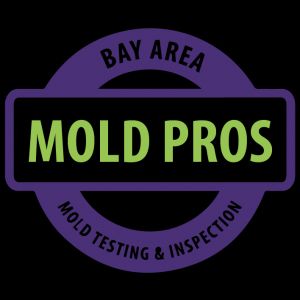Demystifying Mold Inspection: Addressing Common Questions and Concerns
Posted by Bayareamoldpros on April 4th, 2024

Mold inspection is a crucial aspect of maintaining a healthy indoor environment, yet it often raises numerous questions and uncertainties among homeowners and business owners alike. Understanding the fundamentals of mold inspection, recognizing potential risks, and knowing when to seek professional assistance are essential for safeguarding your property and well-being. In this article, we'll address frequently asked questions about mold inspection, explore the risks associated with mold, provide tips for preventing mold growth, and discuss when to call a professional mold inspector. Additionally, we'll highlight the expertise of Bay Area Mold Pros in providing comprehensive mold inspection and testing services in the San Francisco Bay Area.
Frequently Asked Questions About Mold Inspection
- What is Mold Inspection?
- Mold inspection involves a thorough assessment of indoor environments to identify mold growth, assess its extent, and determine potential sources of moisture. Certified mold inspectors utilize specialized equipment and techniques to collect air and surface samples for laboratory analysis, providing valuable insights into indoor air quality and mold contamination levels.
- Why is Mold Inspection Important?
- Mold inspection is essential for early detection of mold growth and prevention of potential health risks and property damage. By identifying and addressing mold issues promptly, property owners can mitigate health concerns, prevent structural damage, and maintain a safe and healthy indoor environment.
- Is Mold Always a Risk?
- While not all molds pose significant health risks, certain types of mold, such as black mold (Stachybotrys chartarum), can produce mycotoxins that may cause health problems, particularly in individuals with respiratory issues or compromised immune systems. Additionally, mold growth can lead to property damage and reduced indoor air quality, regardless of the mold species.
Tips for Keeping Your Home and Business Mold-Free
- Control Moisture: Address sources of moisture such as leaks, condensation, and humidity to prevent mold growth. Ensure proper ventilation in bathrooms, kitchens, and other high-moisture areas, and promptly repair any water leaks or damage.
- Monitor Indoor Humidity: Maintain indoor humidity levels between 30% and 50% to inhibit mold growth. Use dehumidifiers if necessary, especially in humid climates or during wet seasons.
- Regular Cleaning: Keep indoor spaces clean and dry to discourage mold growth. Regularly clean and disinfect bathrooms, kitchens, and other susceptible areas, and promptly address any spills or water accidents.
- Inspect for Mold: Conduct regular inspections of your property for signs of mold growth, including musty odors, water stains, and visible mold. Address any mold issues promptly to prevent further spread and damage.
When to Call a Professional Mold Inspector
While DIY methods can be effective for minor mold issues, it's advisable to call a professional mold inspector in the following situations:
- If you suspect mold growth but are unsure about its extent or type.
- If previous attempts to address mold issues have been unsuccessful.
- If you experience unexplained health symptoms such as allergies or respiratory issues that may be related to mold exposure.
- If you're purchasing or selling a property and require a comprehensive mold inspection for peace of mind.
Choosing the Best Mold Testing Companies
When selecting a mold testing company, consider the following factors to ensure you're hiring a reputable and qualified professional:
- Certification and Credentials: Choose a mold testing company with certified mold inspectors who have the necessary expertise and training to conduct thorough inspections and provide accurate assessments.
- Experience: Look for a company with extensive experience in mold inspection and testing, particularly in your local area. Experienced inspectors are better equipped to identify mold issues and provide effective solutions.
- Customer Reviews and Reputation: Research the company's reputation by reading online reviews and testimonials from past clients. Positive reviews and satisfied customers are indicators of a reputable and reliable mold testing company.
- Comprehensive Services: Select a company that offers comprehensive mold inspection and testing services, including air and surface sampling, laboratory analysis, and detailed inspection reports with actionable recommendations.
Expert Mold Inspection and Mold Testing Services with Bay Area Mold Pros
Bay Area Mold Pros offers professional mold inspection and testing services in the San Francisco Bay Area, providing comprehensive solutions for mold-related concerns. Their certified mold inspectors utilize advanced equipment and techniques to assess properties for mold growth, identify sources of moisture, and conduct air and surface sampling for laboratory analysis. With a commitment to accuracy and integrity, Bay Area Mold Pros deliver detailed inspection reports and personalized recommendations for remediation and prevention strategies.
Conclusion
Mold inspection is a critical aspect of maintaining a safe and healthy indoor environment. By understanding the fundamentals of mold inspection, recognizing potential risks, and knowing when to seek professional assistance, property owners can effectively prevent and address mold issues. For expert mold inspection and testing services in the San Francisco Bay Area, trust Bay Area Mold Pros. To schedule a mold inspection, visit their website or call (650) 762-6228, taking proactive steps towards a mold-free and healthy environment.



